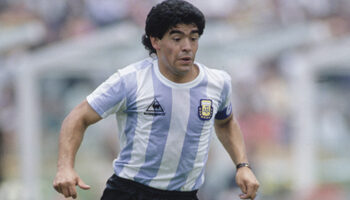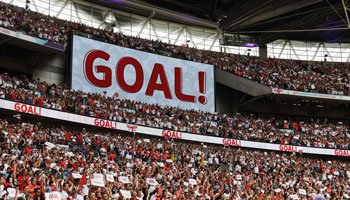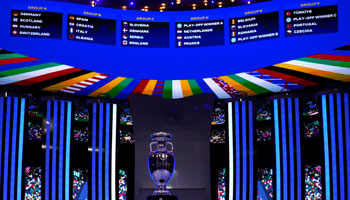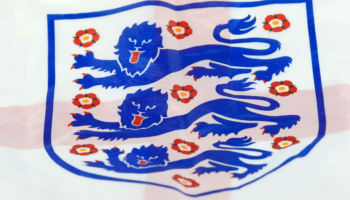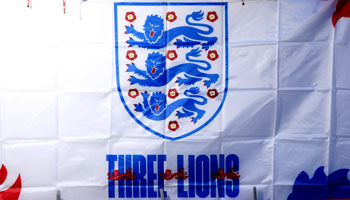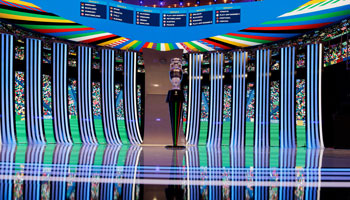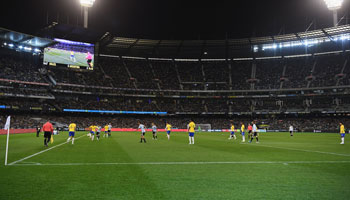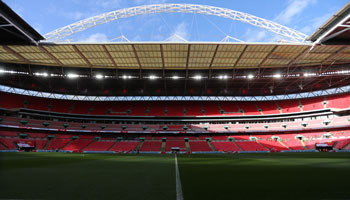Ahead of the 22nd renewal of football’s biggest event in Qatar, we’ve browsed through the tournament’s history books to select an all-time World Cup XI.
The team is made up of a mixture of record holders and generational talents, with a maximum of two players from an individual nation.
We’ve picked an attacking 3-5-2 formation to suit our star-studded lineup.
Goalkeeper: Dino Zoff (Italy)
Zoff captained Italy at two World Cups in 1978 and 1982. During the latter tournament, he became the oldest player ever to feature in a World Cup final, as he led his country to victory over Germany at the age of 40 years and 133 days.
Centre-back: Bobby Moore (England)
As well as lifting the Jules Rimet trophy in 1966, Moore produced arguably his best individual England performance four years later in 1970. Up against an all-conquering Brazil side – now recognised as one of the greatest teams ever – Moore put on a virtuoso display as England succumbed to a narrow 1-0 defeat in Guadalajara. Brazil scored at least three goals against all of their other opponents in the tournament.
Centre-back: Fabio Cannavaro (Italy)
Such was the level of his performances in winning the 2006 World Cup, Cannavaro achieved the rare feat of winning the Ballon d’Or as a defender. Italy conceded only two goals across the whole tournament, one being a penalty and the other an own goal. Cannavaro was exceptional, playing all 690 minutes of Italy’s campaign.
Centre-back: Franz Beckenbauer (Germany)
Beckenbauer was the key man in a Germany side that reached a final in 1966 and a semi-final in 1970, before winning the World Cup in 1974. He was outstanding in all three editions, earning a place in the team of the tournament on each occasion.
Central midfield: Lothar Matthäus (Germany)
Matthäus holds the all-time record for World Cup appearances (25) and is one of just three players to have appeared in five separate tournaments. Equally comfortable in defence and midfield, Matthäus was long seen as the natural heir to Beckenbauer, none more so than by the man himself, who made Matthäus a regular starter in his time as Germany manager between 1984 and 1990.
Central midfield: Andrés Iniesta (Spain)
Iniesta edges out Spanish team-mate Xavi for a place in central midfield alongside Matthäus. Both were at the heart of era-defining Spain and Barcelona sides that dominated world football between 2008 and 2012, but Iniesta gets the nod thanks to his World Cup winning goal in 2010.
Attacking midfield: Zinedine Zidane (France)
There have been few more dramatic World Cup journeys than the one enjoyed by France’s Zinedine Zidane. The mercurial midfielder was sent off twice – for a stamp in the group stage in 1998 and for a headbutt in the 2006 final – but ended as one of the players of the tournament on both occasions.
Right wing: Diego Maradona (Argentina)
Diego Maradona is a shoo-in for an all-time World Cup XI based on his performance in 1986 alone. He scored five goals and provided five assists in a series of scintillating displays, as Argentina won the World Cup for only the second time in their history.
Left wing: Pelé (Brazil)
Pelé led the line for the greatest Brazilian side in history and is the only player with three World Cup wins. Aged just 17 in 1958, he became the youngest player to feature in a final, scoring a brace in Brazil’s 5-2 win over Sweden. Having barely featured in the 1962 campaign, he signed off his World Cup career in 1970 with a goal and two assists in another triumphant final.
Striker: Roger Milla (Cameroon)
Roger Milla’s astonishing career peaked at the age of 38 as he helped Cameroon become the first African nation to reach the quarter-finals of a World Cup in 1990. Having reversed his decision to retire in 1988, Milla netted four times in Cameroon’s history-making run and celebrated each time with a dance around the corner flag. He continued until the next World Cup and managed to score at the age of 42, breaking his own record as the tournament’s oldest goalscorer.
Striker: Ronaldo (Brazil)
No all-time World Cup XI would be complete without Brazil’s Ronaldo who – despite being overtaken as the tournament’s top goalscorer by Germany’s Miroslav Klose – always saved his best for the quadrennial showpiece. He dominated the 1998 tournament before struggling with a mystery illness in the final, but made amends four years later by scoring eight goals as Brazil marched to a fifth title.
Join bwin today and receive up to £20 money back as a FreeBet if your first wager (3+ selections at odds of 1/2 (1.5) or greater) is a loser! Terms and conditions apply.
